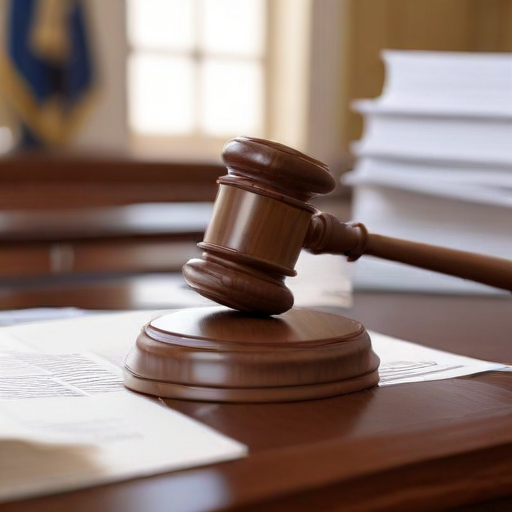A New York appellate court ruled against former President Donald Trump’s request for an emergency order to pause his sentencing scheduled for Friday in connection with the hush money case. Justice Ellen Gesmer made her decision after hearing arguments from Trump’s attorney, Todd Blanche, and a representative from the Manhattan district attorney’s office.
Blanche argued that Trump’s status as president-elect grants him immunity from legal proceedings, asserting that he should not have to navigate the judicial process during this transitional time. On the other hand, Steven Wu, representing the Manhattan DA’s office, dismissed this claim as baseless, highlighting that one president holds office at a time and stressing that Trump’s alleged presidential immunity does not apply in this matter.
Justice Gesmer sought clarification on Trump’s assertion that the sentencing would complicate his transition, to which Wu responded that the process would be conducted virtually and would likely take around an hour. Trump is expected to attend the sentencing remotely rather than in person.
In his petition, Trump sought an immediate stay of criminal proceedings, arguing that the ongoing legal processes infringed upon his constitutional rights and would disrupt the presidential transition, which he claimed could impact national security. Gesmer, however, ultimately denied the application, stating that after reviewing the materials and listening to the arguments, there were insufficient grounds for a stay.
Judge Juan Merchan previously ruled that Trump does not enjoy immunity until he officially assumes the presidency. The upcoming sentencing stems from Trump’s conviction for 34 felony counts related to falsifying business records connected to payments made to adult film star Stormy Daniels during the 2016 election period.
The Manhattan DA’s office indicated this is an appropriate time for sentencing and that Trump, as president-elect, does not have a qualifying claim for immunity from usual criminal proceedings, as he has not yet assumed official presidential responsibilities.
This situation highlights the ongoing intertwining of legal challenges and political transitions in American governance. The implications of this case extend not only to Trump but also raise crucial questions about the balance between legal accountability and political processes.
In summary, the appeals court’s decision upholds the legal proceedings against Trump, allowing the upcoming sentencing to move forward. The outcome of this case, particularly during such a critical transition period, reflects the complex relationship between legal obligations and political status in the United States. Despite the challenges he faces, Trump’s determination to navigate these circumstances could offer hope for those valuing accountability within political systems.
This situation may serve as a reminder that no individual, regardless of status, is above the law, reinforcing principles of justice and accountability in the democratic process.
